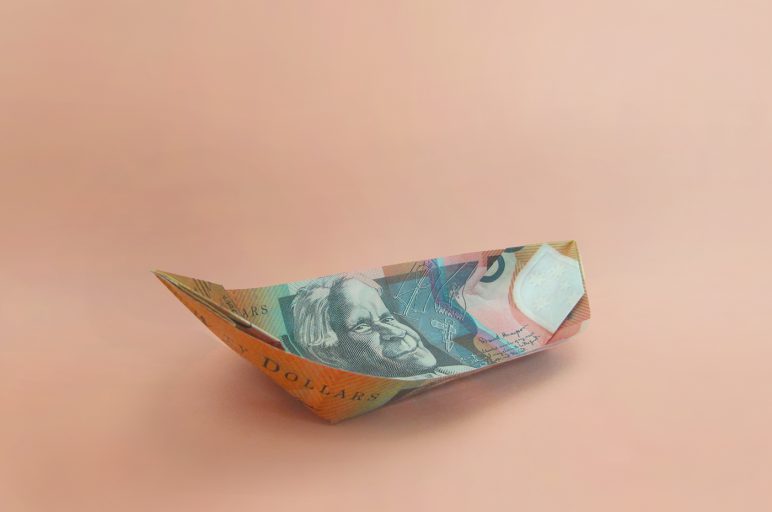- What is small-cap investing?
- Should I invest in small-cap stocks?
- What are the best small-cap ETFs?
- How Stockspot helps you invest in small-caps
What is small-cap investing?
Small-cap investing refers to investing in companies that have a small market capitalisation (i.e. total value), typically anywhere in size between $300 million to $2 billion.
These smaller companies are generally younger, and less well-known than larger companies, and they tend to have more growth potential given their infancy. However, they also can be more risky and volatile, as their businesses are often less established and their financial performance can be more unpredictable and not as strong as larger, well-established companies.
Should I invest in small-cap stocks?
Some investors choose to include small-cap stocks in their portfolio to potentially generate higher returns. Some small companies can increase 10 times or potentially 100 times their value.
For example, Afterpay was listed on the share market in 2017 with a market value of $500 million. In February 2021 it was worth $35 billion, representing a 70x increase (i.e. 7000% gain) in just four years as it transitioned from a small-cap stock to a large-cap stock.
Research from Nobel laureates Eugene Fama and Kenneth French showed that there can be periods of history where small-cap stocks outperform large-cap stocks. However, this is mainly due to taking on more risk. Over the last 20 years, it has been large-cap companies that did better.
Picking the next best small-cap stock can be difficult as two-thirds of stocks underperform a market index.1 We believe the best way to invest in small-caps is through an index-tracking product such as exchange traded funds (ETFs).
What are the best small-cap ETFs?
Each year Stockspot compares all 250+ ETFs in our Australian ETF Report. Here we road test the best small-cap ETFs listed on the ASX:
- iShares S&P/ASX Small Ordinaries ETF (ISO)
- SPDR S&P/ASX Small Ordinaries Fund (SSO)
- Vanguard MSCI Australian Small Companies Index ETF (VSO)
- VanEck Vectors Small Cap Dividend Payers ETF (MVS)
- BetaShares Australian Small Companies Select Fund (Managed Fund) (SMLL)
- K2 Australian Small Cap Fund (Hedge Fund) (KSM).
We compare them across 5 factors: size, costs and slippage, liquidity, returns and track record.
Size
VSO is the largest small-cap ETF with $656 million in assets under management, while ISO is its nearest rival managing $109 million. The other small-cap ETFs have struggled to gain traction with assets ranging from $10 million to $63 million between them.
Costs and slippage
VSO is the cheapest small-cap ETF listed on the Australian share market charging 0.30% per year. It also has the tightest spreads at 0.11%. SMLL is the next cheapest small-cap ETF charging 0.39% but has high spreads of 0.52% given its actively managed strategy. KSM is the most expensive small-cap ETF charging an extraordinary 2.27% in management fees per year plus having 1.13% spreads.
| ASX CODE | COST (INDIRECT COST RATIO) | BUY/SELL SPREADS (SLIPPAGE) |
| ISO | 0.55% | 0.42% |
| MVS | 0.49% | 0.24% |
| VSO | 0.30% | 0.11% |
| SSO | 0.50% | 0.25% |
| SMLL | 0.39% | 0.52% |
| KSM | 2.27% | 1.13% |
Liquidity
VSO is the most traded small-cap ETF with over $1.1 million traded every day, providing ample liquidity. MVS and ISO are the next most liquid small-cap ETFs trading $309,000 and $174,000 daily respectively. The two active ETFs, SMLL and KSM, have very limited volume given their small take-up by investors.
Returns
VSO has been the best-performing small-cap ETF returning 8.3% p.a. over the past five years. This is mainly due to having higher exposure to cyclical sectors, such as materials, which have a higher sensitivity to the domestic economy. VSO also holds slightly larger-sized companies, with a weighted-average size company of $3 billion, compared to other small-cap ETFs which have an average company size of between $1 billion and $2 billion. Active fund managers like KSM have struggled to generate good returns, with a negative five-year annualised return, highlighting why active fund managers tend to underperform a market index.
| Ticker Code | 1 YEAR RETURN | 3 YEAR RETURN (P.A.) | 5 YEAR RETURN (P.A.) |
| ISO | -22.2% | -0.8% | 4.2% |
| MVS | -19.4% | -2.3% | 3.4% |
| VSO | -12.3% | 5.4% | 8.3% |
| SSO | -21.6% | 0.0% | 4.7% |
| SMLL | -17.8% | 1.8% | 5.5% |
| KSM | -27.7% | 0.9% | -0.5% |
Track Record and index
ISO was the first small-cap ETF on the Australian market launching at the end of 2010. SSO and VSO debuted the year after, followed by MVS launching in 2015. Most of the index-based ETFs have a large number of holdings, despite MVS which is more concentrated, while the active fund managers have a smaller number of holdings.
| Ticker Code | Index | ETF Inception | Index Inception | Number of holdings |
| ISO | S&P/ASX Small Ordinaries Index | December 2010 | April 2000 | 209 |
| MVS | MVIS Australia Small-Cap Dividend Payers Index | May 2015 | March 2015 | 83 |
| VSO | MSCI Australian Shares Small Cap Index | May 2011 | December 2000 | 198 |
| SSO | S&P/ASX Small Ordinaries Index | April 2011 | April 2000 | 211 |
| SMLL | N/A | April 2017 | N/A | 70 |
| KSM | N/A | December 2015 | N/A | 31 |
Best international small-cap ETFs
Australian investors can access small-cap companies listed overseas through ETFs. There are currently three global share small-cap ETFs available on the ASX:
- iShares S&P Small-Cap ETF (IJR)
- Vanguard MSCI International Small Companies Index ETF (VISM)
- VanEck Vectors MSCI International Small Companies Quality ETF (QSML)
How Stockspot helps you invest in small-caps
Stockspot creates diversified portfolios based on your risk tolerance to help you achieve your financial goals. These portfolios mainly consist of large-cap companies, but we do allow clients to add small-cap companies to their portfolio through Stockspot Themes.
Our preferred small-cap ETF is the Vanguard MSCI Australian Small Companies Index ETF (VSO) given its larger size, better liquidity, and performance.
1 JP Morgan: The Agony & The Ecstasy: The risks and rewards of a concentrated stock position



